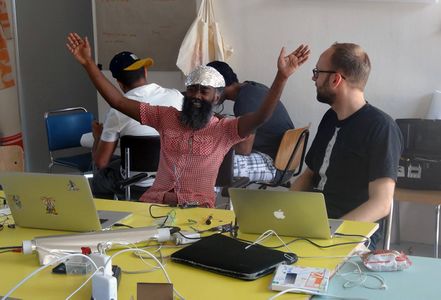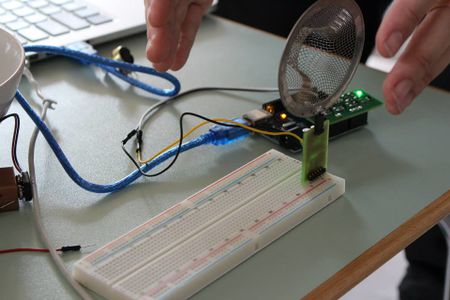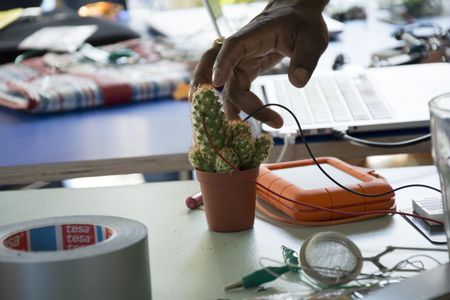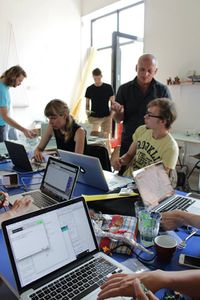DIY theremin making: Difference between revisions
No edit summary |
No edit summary |
||
| Line 11: | Line 11: | ||
Workshop by by [[Andrey Smirnov]]. | Workshop by by [[Andrey Smirnov]]. | ||
The workshop offers hands-on introduction to interactive systems, based on the theremin-sensors - small and sensitive digital theremins similar to the well known electronic musical instrument, invented by Russian inventor Leon Theremin in 1919. They are useful for numerous applications, including motion tracking, gestural interfacing, monitoring of small variations of electrical capacitances related to any sorts of conductive materials and media, including metal objects, foil, water, human body, plants, metal threads, thin plastic films with metallization etc. | The workshop offers hands-on introduction to interactive systems, based on the theremin-sensors - small and sensitive digital theremins similar to the well known electronic musical instrument, invented by Russian inventor Leon Theremin in 1919. They are useful for numerous applications, including motion tracking, gestural interfacing, monitoring of small variations of electrical capacitances related to any sorts of conductive materials and media, including metal objects, foil, water, human body, plants, metal threads, thin plastic films with metallization etc. | ||
| Line 24: | Line 23: | ||
</gallery> | </gallery> | ||
[[Category: | [[Category:Appendix]] | ||
[[Category:Ready to be published]] | |||
[[Category:Print]] | [[Category:Print]] | ||
[[Category:Web]] | [[Category:Web]] | ||
Revision as of 15:32, 22 October 2015
Workshop by by Andrey Smirnov.
The workshop offers hands-on introduction to interactive systems, based on the theremin-sensors - small and sensitive digital theremins similar to the well known electronic musical instrument, invented by Russian inventor Leon Theremin in 1919. They are useful for numerous applications, including motion tracking, gestural interfacing, monitoring of small variations of electrical capacitances related to any sorts of conductive materials and media, including metal objects, foil, water, human body, plants, metal threads, thin plastic films with metallization etc. From the start of the workshop participants will convert their laptops into digital theremins, using as an interface Arduino microcontroller or just an ordinary sound card. The sensors for testing and experimenting as well as all appropriate software libraries will be provided by the instructor. The theoretical introduction, which accompany a workshop, gives technical overview of sensor technology and construction, basic principles of operation of the theremin based systems, art and music applications, useful concepts and ideas.



